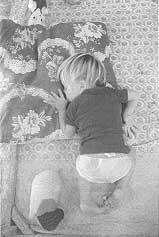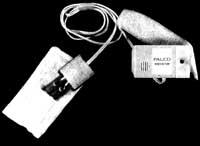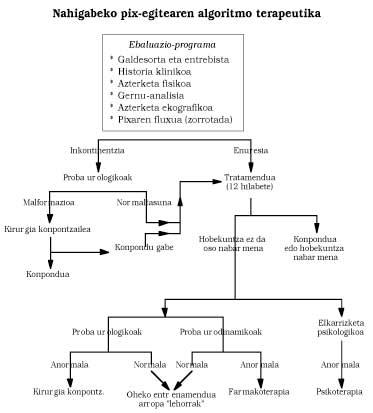Nocturnal enuresis
This time we will talk about the nocturnal enuresis of children. That is, we will rule out the incontinence or leaks of urine that can occur in adults, for one cause or another, as well as the problems that children have to maintain daily urination.

Therefore, our topic is the problem that children have at night. Nocturnal enuresis is quite frequent: At 5 years, 10-15% of children endure it, decreasing the frequency as age increases, being 1% in adolescence (15 years). And if the cause is not a serious alteration, enuresis usually disappears and it is very rare cases that can be seen in adults.
What is called enuresis? To those who do not control the will and repetition of the orines from the 4-5 years, since at that age most children control this function quite well. In 80% of cases, enuresis only appears at night while the child sleeps.
There are two types of enuresis: primary and secondary. In primary enuresis, the child is never able to control urination. However, in secondary school, with proper control of urination, the child spends time without controlling urination.
Enuresis may be due to organic causes: urethral and/or bladder malformation, or to neurological or muscle disorders. Or also due to diseases such as diabetes or urinary infections. For this reason, the doctor may request in some cases urine tests to rule them out). However, in most cases, the origin is related to psychic problems. Enuretic children usually have affective problems in the family, and in some cases enuresis is an attitude contrary to their parents, even if they are unconscious. In these cases a psychological treatment can be convenient to solve the basic problem.
On other occasions, enuresis will appear after the birth of the hermanito. Since all family attention and attention is given to the newborn, the child explains his “protest” as follows: a regression occurs, the child moves backwards, in order to collect the mimes and responsibilities he received when he was younger. It is important that these children's affective needs be met, trying to get their new little brother to understand that it is good and not steal the love of their parents. If enuresis persists, it is advisable to go to the pediatrician and, if necessary, to the psychologist.

The greatest help parents can offer the child is to understand and have patience. Wet the bed can be an impediment for parents, if at night they have to get up to change it, but for the child it can also be embarrassed if they have to endure mocking and mocking their older siblings or companions.
When does the child begin to sit in the potty? With approximately 18 months. That is the most appropriate age. It must be taken into account, however, that there may be great differences between children and others. If from 12 months the child takes special gestures or postures before urinating, it should be put in the potty and if he urinates inward, show him his joy.
Many times, in addition, there is a tendency to have a previous family problem. In the case of many children with enuresis, some parent or close family member has also suffered the same situation. The broad surveys indicate that when the two parents have suffered enuresis in their childhood, 70% of the children will also have it. However, when only one parent has had it, it only affects their children by 40%.
As for treatment, it will depend on the cause that causes it. If it is an organic cause, the disease should be treated. If enuresis is of psychic origin, psychotherapy can be beneficial. In some cases a special device is effective which is placed in bed; bedding (sheets, pajamas, etc.) When wet, an alarm is lit by awakening the child.
However, some practical advice can be taken into account:
- If the child has to arrive in time to the bathroom room, it is advisable not to sleep very far and leave the proper light at night so that they do not be frightened when rising from the bed. It is also convenient to leave some potty under the bed.
- Many times the problem disappears if the child does not drink liquid from 1 to 2 hours before going to bed, since the kidneys produce less urine and therefore the bladder fills more slowly. However, in summer or when the child has a fever, sweat more and lose more water. In these cases, a low supply of liquids can be dangerous. On the other hand, it is convenient that when parents go to bed they also take the child to the bathroom to orient.
- The child can be trained to keep urine during the day, encouraging him to hold it even if only one or two minutes. In this way the bladder expands and increases its conservation capacity, thus improving the night control. At this time, the child should drink plenty of water throughout the day.

If success is not achieved with these measures, we will need medical assistance. There are some medications that are often combined with a graph of prizes (imigranin, amitriptyline, etc. ). ). The child will mark an asterisk or sign for each night that has been awakened dry, and the applause (and the “lattices”) he will receive will be stimulating.
Or put a device on it. When the clothes start to get wet, sounds a bell, the child wakes up, goes to the bathroom, ends the urination and if necessary change the sheets, giving the alarm before going back to bed.
These types of alarms are safe for children over 8 years of age and must comply with all official security measures. Although it seems like a fairly harsh method, nocturnal enuresis is usually very effective for healing.
Suggestions for Fathers and Mothers to Act as Companions of the Doctor in the Treatment of Enuresis
Note that nocturnal enuresis is not solved one day. |

Note: Note: To see well these tables go to pdf.





